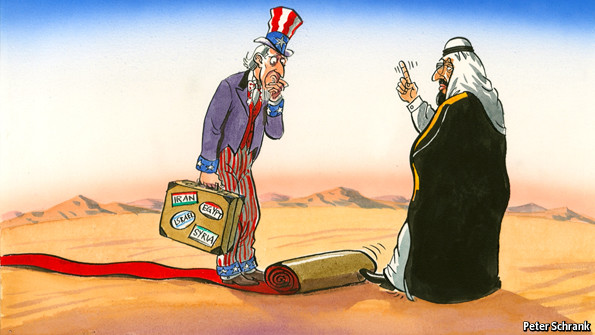PARSA VENKATESHWAR RAO JR
The plan is not official, yet. But there seems to be some buzz around it. And the buzz is emerging from Tel Aviv. It is American news website Axios’s Tel Aviv correspondent, Barak Ravid, who has done the story that the national security advisers of the US, India, Saudi Arabia and United Arab Emirates will be discussing the issue, and that this has been in the pipeline for more than a year now.
The plan: a rail project linking the Gulf Arab countries with India. But it is being presented as linking West Asia with South Asia to make it appear that it is a larger regional project. The countries who will be involved in it as major players would be the US and India, the US with the money and the plan, and India with its expertise in implementing international railway projects.
US Counter to China’s BRI
But the details will emerge much later. The priority is the strategic goal. This can be seen as an American counter to the Chinese Belt and Road Initiative (BRI), an attempt to check the Chinese economic footprint beyond China.
To begin with, China has strong relations with Iran and with Saudi Arabia. Riyadh is not completely in the American camp. The Americans have been trying to integrate Israel with the Gulf Arab states, but the Abrahamic Accords which diplomatically connected the UAE and Bahrain – it also included Sudan and Morocco – stand as an unfinished agenda. Saudi Arabia is not in it.
The Americans had tried to create another strategic formation comprising the UAE and the US, Israel and India with the curious chemical acronym I2U2. But in the proposed West Asian rail link project, Israel is to be kept out, apparently for the moment. And it will be India, the US, Saudi Arabia and the UAE who will form the core group.
But this too would remain incomplete unless Syria, Oman, Iraq are brought into the project, apart from Qatar and Bahrain. Though Saudi Arabia and UAE, and even India would not object, the US would not want either Syria or Iran to be part of the project. And Israel would be out of it as well because of the inclusion of Syria and Iran.
A History Lesson
Americans may not want to know the complicated and doomed history of railway projects in the region in the early part of the 20th century with all its strategic and political overtones. First, there was the Berlin-Baghdad rail link which was to have been constructed by the Germans, and it was part of the German and Turkish strategic planning.
Though the Ottoman Empire of Abdul Hamid II was on its last legs before the 1908 Young Turk revolution, the Ottoman emperor saw the advantages of the railways in tightening the control of Istanbul over the empire in Mesopotamia, and there was to have been an extension of the Berlin-Baghdad line to the port of Basra.
Abdul Hamid II wanted the Hejaz Railway to link the two holiest shrines of Islam, Makka and Madina, and he wanted to build it with the money of Turkey and other Muslim nations. There were plenty of problems in implementing the project, including the resistance of the Arab notables to the railway because they believed that this would weaken their influence and power. The Hejaz railway got constructed after the many pauses in the 1920s. But by then the political map of the region had changed.
America’s Receding Footprint
So, the Americans, Indians and others have to recognise that a railway undertaking in the region, for implicit strategic goals, will be a hurdle race, with too many compatible and incompatible issues thrown in. And they will not be the first ones to engage in it. It has been tried before. China is unlikely to be checkmated by the move because its oil imports from Saudi Arabia are the highest from that country in 2022, and the economic relationship is much too solid to be shaken or stirred.
It would seem that the rail project is a desperate attempt by President Joe Biden to keep the American foot inside the Arab door. India’s relations with the Arab states stand independent of the American factor. The same cannot be said about Israel’s presence in the region.
Without American mediation, Israel will find it difficult to be in the same room as the Arab players, including Syria. In the last few months, Syria had been readmitted into the Arab fold after the 2011 break. And the Iranians are on friendlier terms with Saudi Arabia. That makes things awkward and uncomfortable for the US and Israel.
Parsa Venkateshwar Rao Jr is a New Delhi-based journalist. Views are personal and do not represent the stand of this publication.
Courtesy: moneycontrol


